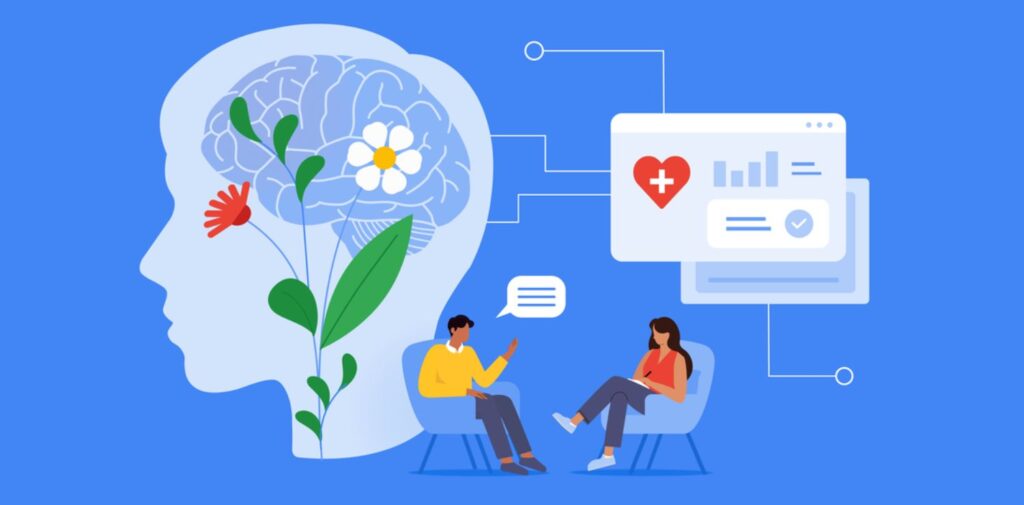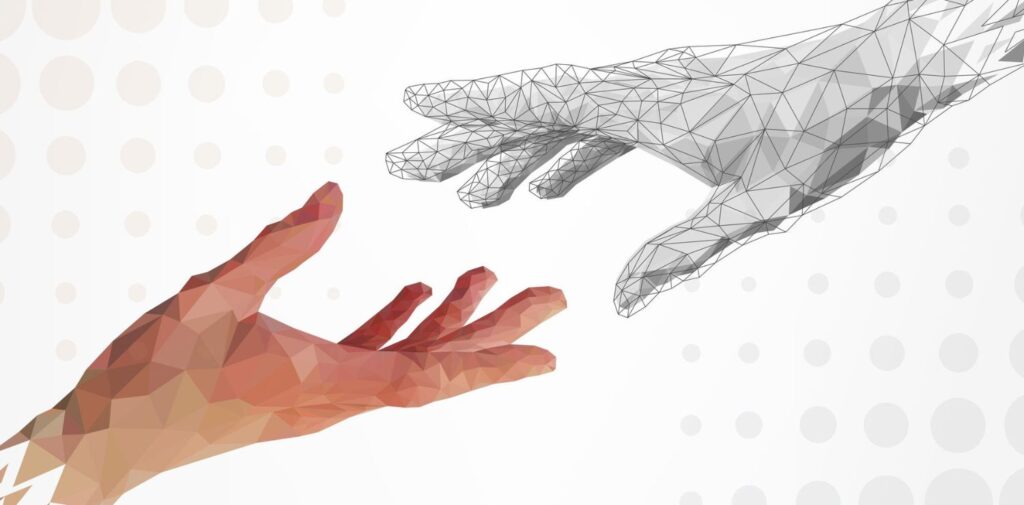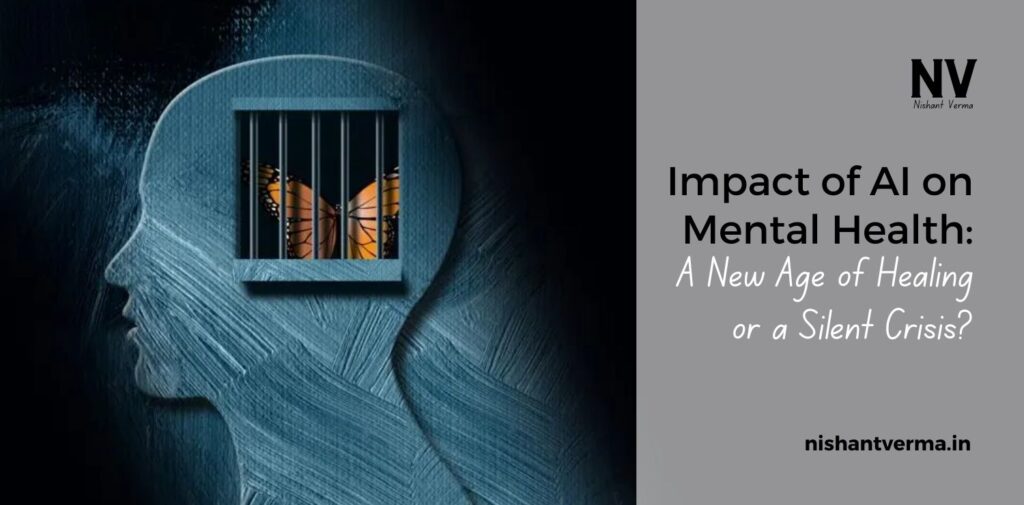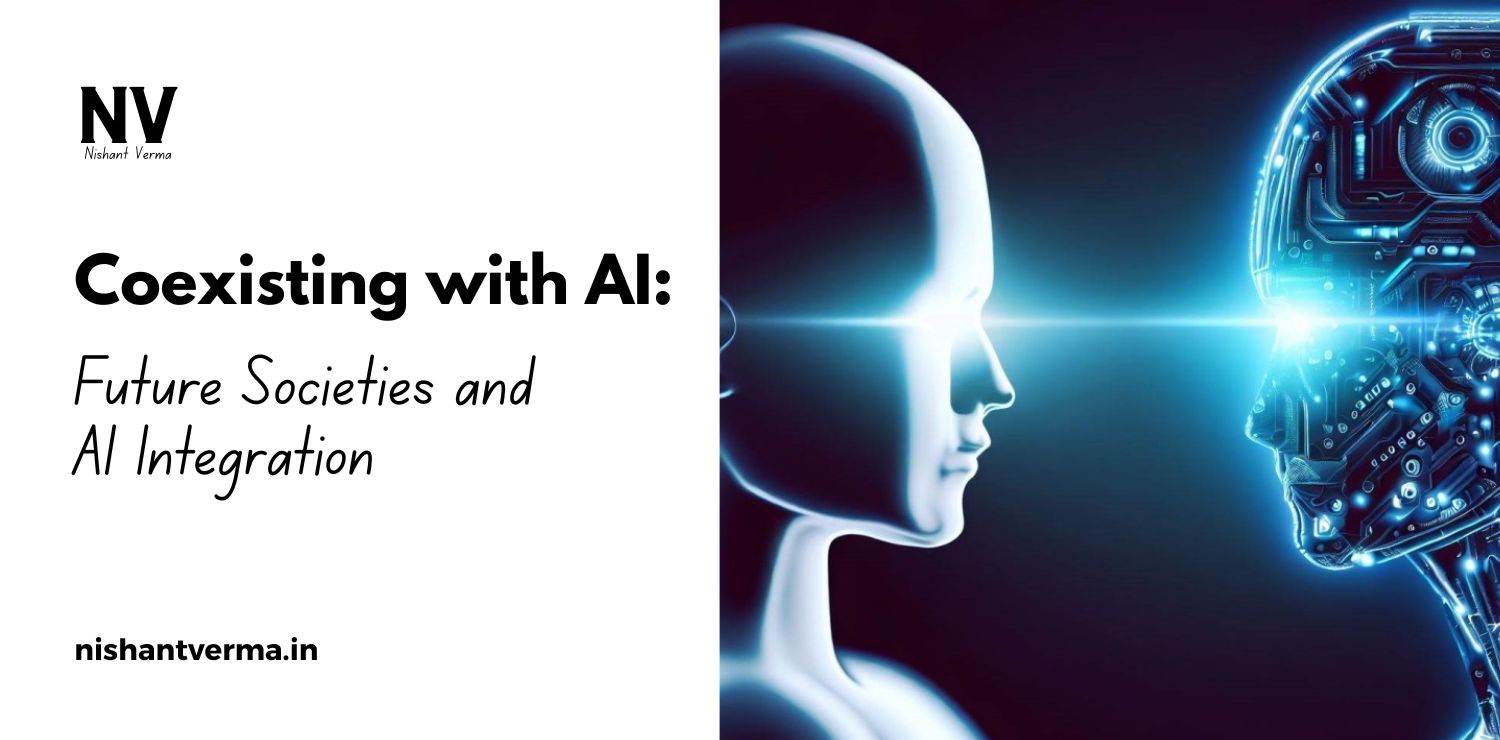In recent years, Artificial Intelligence (AI) has become a big part of our lives. From smartphones to smart homes, from shopping online to watching movies on OTT platforms, AI is everywhere. It has also entered the field of mental health. This is a good thing in many ways, but it also brings some concerns. In India, where mental health is still a sensitive topic, AI can play a very important role in changing how people look at mental health and how they take care of their minds. Let’s understand how AI is impacting mental health in India in simple words.

How AI is Helping in Mental Health Care
AI is being used in many ways to help people deal with mental health issues. There are apps that can listen to your voice and understand if you are stressed, sad or anxious. There are chatbots that can talk to you when you are feeling low. Some apps even give you exercises like meditation or breathing techniques when you are feeling anxious.
Many people in India still feel shy or scared to visit a mental health expert because of the stigma attached to it. AI-powered apps and tools can provide support without any fear of judgment. People can talk to these tools anytime, from the privacy of their homes. This makes it easier for them to take the first step toward healing.
Also, in a country like India where there are not enough trained mental health professionals, especially in rural areas, AI can help fill the gap. AI can support doctors and therapists by analyzing data and giving useful insights. This can save time and help in faster diagnosis and treatment.
AI in Everyday Mental Health Tools
In India, many people are now using apps like Wysa, Youper, and InnerHour. These are AI-powered mental wellness apps that talk to users in a friendly way and suggest ways to feel better. They help users track their moods, set goals, and improve their mental health step by step.
For students who feel stressed due to exams and pressure, or working professionals going through burnout, these apps can offer support at any time of the day. The 24/7 availability of AI tools is one of their biggest advantages. It also makes mental health care more affordable and accessible.
Apart from this, AI is being used in wearable devices that monitor sleep, heart rate, and stress levels. These devices give alerts and suggestions to users to improve their health. Many urban Indians are adopting these gadgets to stay mentally and physically fit.

Challenges and Risks of AI in Mental Health
While AI is helpful, it is not perfect. One of the biggest concerns is that AI lacks real human emotions. A chatbot may give good answers, but it cannot truly feel what the person is going through. In some serious cases like depression, suicidal thoughts, or trauma, only a trained human therapist can give the right support.
There is also a concern about privacy. Mental health data is very personal, and if AI tools are not properly secured, there is a risk of misuse of this sensitive information. People must be careful while using AI apps and choose platforms that have strong data protection policies.
Another challenge is the over-reliance on technology. Some people may start depending too much on AI and avoid meeting real doctors or therapists. This can delay proper treatment. AI should be seen as a support system, not as a replacement for professional help.
Also, most AI tools are built in English or foreign languages, which can be a barrier for many Indians who are more comfortable in regional languages. Efforts are needed to make AI mental health tools more inclusive and culturally suitable.
Opportunities for India’s Mental Health System
India has a young population, and with the rise in internet and smartphone use, there is a big opportunity to spread mental health awareness using AI. Schools and colleges can use AI-powered tools to check the emotional well-being of students. Workplaces can provide AI wellness programs to help employees manage stress.
The government and private sector can work together to build AI systems in Indian languages and design tools that understand the cultural context of Indian users. If used wisely, AI can make mental health support reach every corner of India.
Many NGOs and health startups are already working on AI projects for mental wellness. With more support and funding, these efforts can become even more powerful and effective. AI can also be used to collect data and study mental health patterns in different regions of India, which can help in policy-making and better healthcare planning.

The Human Touch Still Matters
No matter how smart AI becomes, the need for human connection and empathy will always be there. A machine cannot replace a friend who listens, a parent who comforts, or a therapist who understands your pain deeply. AI can be a great assistant, but the real healing happens when people feel heard and cared for by other human beings.
Mental health is not just about solving problems. It is also about building relationships, finding purpose, and feeling connected. These are things that only humans can truly offer to each other. AI can help, guide, and support, but we must never forget the value of a real conversation and emotional bonding.
Conclusion: A Balanced Approach is the Key
The impact of AI on mental health in India is both promising and complex. It brings hope to millions who need help but cannot reach out due to stigma, cost, or distance. At the same time, it also brings challenges that we must face carefully.
The key is to use AI as a tool, not a complete solution. We should combine technology with human wisdom, care, and compassion. If used responsibly, AI can be a great partner in India’s journey towards better mental health for all. It is not about replacing humans, but about reaching more humans with the help of machines.
In a world where mental health is becoming more important than ever, AI can light up the path—but the journey must be walked hand in hand with the heart and the mind together.




